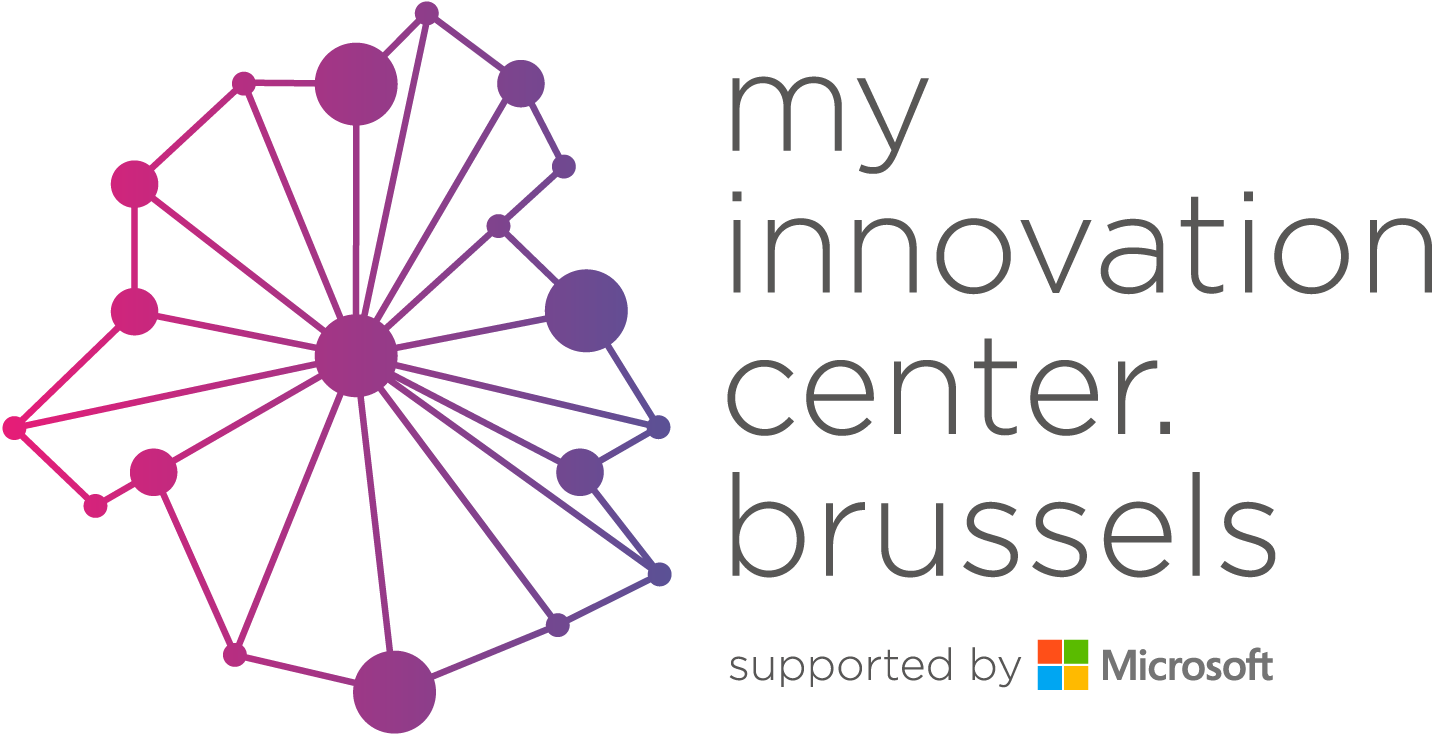Press Release
Public-private partnership amplifies focus on Brussels businesses and organizations in digital transformation
Microsoft Innovation Center Brussels at the start of a new chapter
Brussels, 13th May 2020 - Microsoft Innovation Center Brussels has a new name. As ‘my innovation center.brussels’, supported by Microsoft, the public-private partnership will continue to support Brussels companies and organisations in their digitisation and adoption of technology. The new logo design emphasises the MIC’s Brussels roots and the belief in the motto #TheFutureLivesInBrussels. MIC Brussels is also announcing its action plan for the near future: create even more awareness of the possibilities offered by technology and support Brussels SMEs in their digitalisation and boost people’s digital skills.
While the Microsoft Innovation Centers were founded worldwide as a global Microsoft initiative, they have now evolved into locally-governed entities. This shift triggered Microsoft Innovation Center Brussels to change its name. As ‘my innovation center.brussels’ the public-private partnership will look to take even more advantage of the opportunities and cross-pollination offered by the capital in terms of digitisation and innovation for businesses in the Region.
“The partnership will run under the name ‘my innovation center.brussels, supported by Microsoft’,” says Cécile Jabaudon, Operational Director of MIC Brussels. “So we will continue to work with Microsoft and our partners to create awareness in the region around technology and innovation. We strongly believe in the motto #TheFutureLivesInBrussels and will carry on our initiatives to support Brussels companies and organisations with the same dedication to make this happen and take the next step in their digital transformation.”
The partnership between Microsoft, the Brussels-Capital Region, hub.brussels, Digitalcity and CIRB, the Information Technology Centre for the Brussels Region, emphasises the start of this new chapter with a new logo and visual identity. The logo clearly shows the Brussels-Capital Region and breathes a sense of connection.
Action plan: Focus on SMEs
The activities of MIC Brussels are subdivided into three pillars: Innovation, Digitisation and Training. The public-private partnership now also announces where the action points within these pillars will lie in the near future. On the one hand, more attention will be paid to supporting SMEs by boosting innovation and helping companies and organisations to develop IT prototypes by providing a supportive environment.
To do so, MIC Brussels motivates Brussels SMEs to participate in its prototyping programme. For participating companies, a bachelor IT student is selected on the basis of test results who will work out a prototype or ‘proof of concept’ defined by the company on location three days a week during a 15 week internship. The other two days, the student is supervised by a coach at MIC. This way, the SME can count on the expertise of a Chief Technology Officer, or CTO. In addition, the prototyping programme, which falls under the Innovation pillar, opens doors in the field of recruiting and positions companies at the source of promising talents about to graduate.
On the other hand, MIC will focus even more on supporting SMEs in digitisation by creating awareness around technology. MIC Brussels mainly does so with the help of digital sessions on various topics such as AI, cybersecurity or the Cloud… These sessions are free of charge for Brussels SMEs and accessible to all employees or to the management. This allows for an open dialogue and cross-fertilisation around technology. MIC experts also develop training sessions specifically tuned to the profile and needs of SMEs.
Social, economic and environmental transition
“The Brussels-Capital Region is committed to a strong economic, social and environmental transition in Brussels. Digitisation is a key aspect in this transition and MIC Brussels plays its role in it by smartly increasing digital skills. By sharing expertise through training sessions and webinars, creating awareness about the potential of IT and stimulating employment, we support the Region in each of these three pathways,” says Cécile Jabaudon.
“The health crisis has shown that entrepreneurs and SMEs can reinvent themselves and keep afloat during these challenging times when they digitalise some parts of their activity,” testifies Barbara Trachte, State Secretary of the Brussels-Capital Region, in charge of Economic Transition. This is a great illustration of what I mean by giving a sense to digitalisation: Digitalisation is not an end in itself but a means to improve the business conditions of our entrepreneurs, the skills of our citizens, and the management of our environmental resources. In this context, the work of the public-private partnership ‘my innovation center.brussels’ is a valuable collaboration that will help the transition of the Brussels Region towards a greener, more inclusive and more efficient economy.”
Didier Ongena, General Manager of Microsoft BeLux agrees: “I’m thoroughly convinced that the efforts of the MIC Brussels can stimulate the continued digitisation of SMEs and help companies and organisations in Brussels take the next steps. And as a Brussels native and resident I have always been particularly supportive of the work we do with our local community. Together with the support of Microsoft we can continue to make a difference for all SMEs, particularly now and after this crisis.”
Press coverage
Here are some articles that cover this new chapter:
- DataNews (in French or in Dutch)
- Solutions Magazine
- Digimedia (in French or in Dutch)
- KMO Insider
- Régional IT
- La Libre
